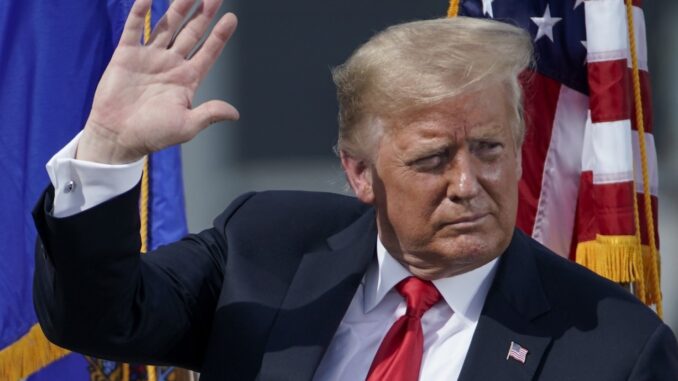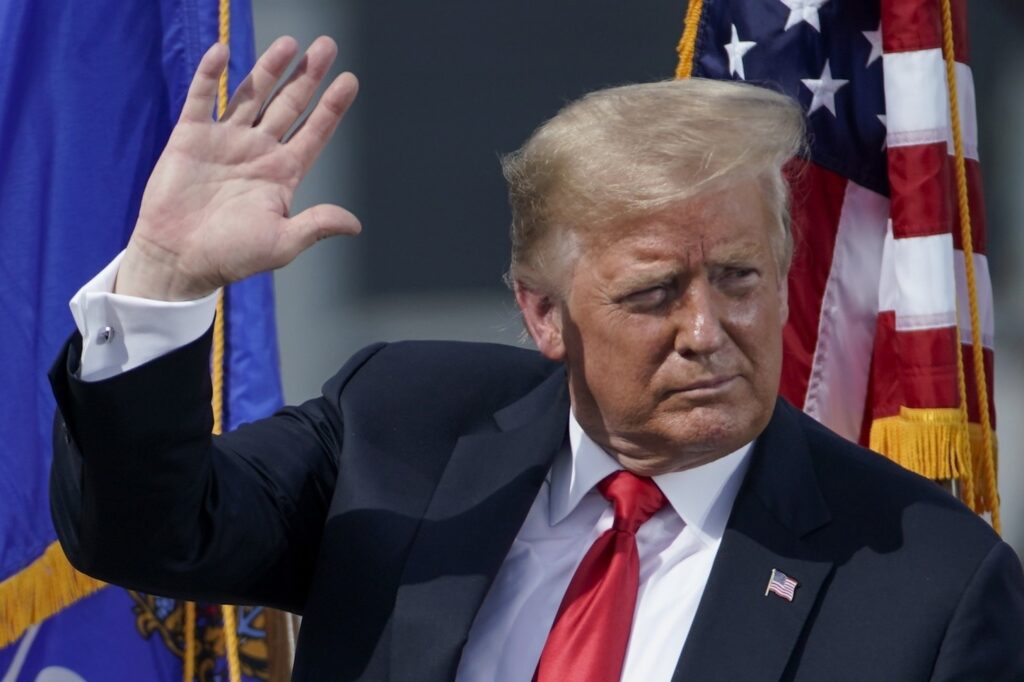
The US elections are important in determining whether the end of White conservative hegemony will be delayed for a time, but they cannot prevent its ultimate demise, says Onyekachi Wambu.
Experts are making a case that the US Presidential elections on 3 November are going to be the most decisive in a generation for the US itself, and perhaps the world, given the revolution Donald Trump is trying to engineer through his Make America Great Again (MAGA) policies.

Domestically, MAGA would mean arresting processes currently underway, whereby America is gradually becoming less White and more multiracial, with all that implies for national identity.
Instead, at all levels from the Supreme Court downwards, there is an attempt to remake America as a conservative, White-dominated nationalist enclave – reflecting a lament for the relative decline of the Atlantic world that gave birth to it over the last 500 years.
Externally, in an attempt to reassert this faltering Atlantic hegemony, the MAGA vision is projected on a global level, again attempting to arrest the multi-polar and Eurasian world that is currently unfolding.
Joe Biden, Trump’s opponent, is supposed to represent all the forces that are the opposite of MAGA. He has built an alliance that includes the growing Spanish-speaking Hispanics, and through his Vice-Presidential choice, the important constituencies of urban liberal professionals, Asians and African-Americans.
Quirks of the electoral system
This alliance is the future in America and Biden will probably in the end win the popular vote, but like Hillary Clinton, is likely to fail to win the Presidency due to the quirks of the US electoral college, which gives as much power to the suburbs and small states as it does to Biden’s big states and urban strongholds. Clinton won 2.9m more votes than Trump without winning the Presidency.
Domestically, does it really matter who wins in the end? Since the financial crash of 2008, 9/11 and until the current pandemic, the US has suffered an unprecedented economic collapse.
The deficit is now $1.4trn, and the debt is projected to be over 100% of GDP by 2021. The country avoids financial meltdown only through the endless printing of paper money, which avoids an inflationary spiral only because of the dollar’s reserve status.
The economic crisis is in turn triggering a social crisis, which we are seeing with the rise of White nationalism and in response, the Black Lives Matter movement, as the latter moves to renegotiate and finally strike down the racist structures that underpinned the Atlantic world. The social crisis and protests are impacting how people will vote and Trump is playing the law and order card hard, hoping to reassure his suburban voters, fearful of their diminishing power in a rapidly changing America.
The strategy is to convince them that his winning power now can delay for a generation some of the inevitable, through using the Supreme Court and Congress to freeze the current structures built on White supremacy. Redefining who is a citizen and enshrining English as the national language will be early tests.
A win for Trump will perhaps delay the inevitable for 10-15 years, but the demographic fundamentals mean that America, if it holds together, will change irrevocably by the end of this century.
Does any of this matter to those of us abroad? Well yes. Trump is emboldening nativists and White supremacist voices across the globe who are also attempting to defend the Atlantic hegemony, delaying the inevitable movement towards a multi-polar world that is being shaped by demographic and economic fundamentals, in terms of production, skilled workforce, markets and consumption, with China as the spearhead of this emerging majority.
So, the US elections are important in determining whether this reality will be delayed or arrive sooner. Ironically, the attempts so far by Trump to halt this change and the chaos it has unleashed globally have in the end led to an acceleration of the changes.
The soft power that the US enjoyed is increasingly just an iron fist of economic sanctions and military threats. Countries are beginning to seek the use of alternative financial systems that avoid the dollar.
They see how what is increasingly printed paper is being used to purchase hard assets in their countries and they are beginning to act accordingly. In the end, the contradictions mean that whoever wins, America is in for what the Chinese used to refer to as ‘interesting times’.

Written by Onyekachi Wambu
Onyekachi was educated at the University of Essex and completed his M.Phil in International Relations at Selwyn College, Cambridge. He worked extensively as a journalist and television documentary. He edited The Voice Newspaper at the end of the 1980s and has made documentaries and programmes for the BBC, Channel 4 and PBS.



